1: Introduction
Overview of the Importance of Skincare
Skincare is an essential aspect of overall health and well-being, often underestimated in its importance. Playing a critical role in maintaining the integrity and functionality of the skin, it transcends mere cosmetic concerns. Effective skincare routines not only enhance the skin’s appearance but also bolster its ability to protect against environmental aggressors like pollutants, UV rays, and microorganisms.

Moreover, skin care is deeply intertwined with self-esteem and mental health. A clear and healthy complexion can significantly boost confidence and positive self-perception. Conversely, skin issues can lead to stress and anxiety. Thus, understanding and practicing proper skincare is not just about looking good; it’s about feeling good and ensuring the health of your skin.
Brief History of Skincare Practices
The practice of skincare dates back thousands of years, with evidence found in ancient civilizations like Egypt, Greece, and Rome. These cultures utilized natural ingredients like olive oil, honey, and herbs for their skin-enhancing properties. In Egypt, for example, skincare was a part of daily life, with the use of substances like aloe and essential oils to protect the skin from the harsh desert conditions.
As we moved through the ages, skincare practices evolved. The Middle Ages saw the use of substances like wine and milk. At the same time, the Renaissance period emphasized pale skin, leading to the use of lead-based products, which we now know were harmful—the 20th century brought significant advancements with the development of modern dermatology, leading to a deeper understanding of skin health and the creation of products catering to various skin concerns.
2: Understanding Your Skin Type

Identifying Different Skin Types: Normal, Oily, Dry, Combination, Sensitive
Recognizing your skin type is the cornerstone of effective skincare. Generally, skin types are classified into five categories: normal, oily, dry, combination, and sensitive.
- Normal Skin: This skin type is well-balanced, meaning neither too oily nor too dry. It’s characterized by a smooth texture, no severe sensitivities, and a generally clear complexion with minimal blemishes.
- Oily Skin: Oily skin typically has enlarged pores and a shiny appearance due to excess sebum production, making it more susceptible to acne and blackheads.
- Dry Skin: Dry skin often feels tight and may flake or itch. It’s characterized by a lack of moisture and oil, which leads to a rough or dull appearance.
- Combination Skin: Combination skin is characterized by an oily T-zone, which includes the forehead, nose, and chin, and normal to dry cheeks.
- Sensitive Skin: This skin type reacts quickly to stimuli with redness, itching, or rashes. Sensitive skin requires gentle care and products free from irritants.
How to Determine Your Skin Type
To determine your skin type, observe how your skin feels and appears, incredibly, a few hours after washing when it returns to its natural state. An easy method is the ‘bare-faced test,’ where you cleanse your face, leave it product-free for a few hours, and then examine the T-zone and cheek areas for oiliness or dryness. Patch tests with different products can also help identify sensitivity.
3: The Science of Skin
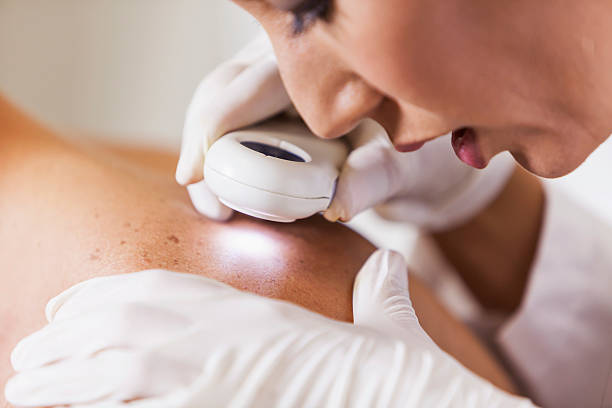
Basic Anatomy of the Skin
The skin is an intricate organ composed of several layers, each with unique functions. The top layer, known as the epidermis, acts as a protective barrier and regulates skin color. Beneath it lies the dermis, which contains tough connective tissue, hair follicles, and sweat glands. The deepest layer, the hypodermis, is made of fat and connective tissue.
How Skin Functions: Protection, Regulation, and Sensation
The skin has several vital functions:
- Protection: It acts as a shield against mechanical impacts, radiation, temperature, and chemicals. The epidermis, especially the stratum corneum, plays a crucial role in this protective function.
- Regulation: The skin regulates body temperature through sweat and blood flow. When hot, sweat glands activate to cool the body, and blood vessels in the skin dilate. Conversely, in cold conditions, these vessels constrict to retain heat.
- Sensation: The skin is a sensory organ containing receptors for touch, pain, and temperature. These receptors send signals to the brain, allowing us to respond to our environment.
By understanding these layers and functions, we can better appreciate the complexity of our skin and the importance of caring for it through appropriate skincare practices.
4: Daily Skincare Routines
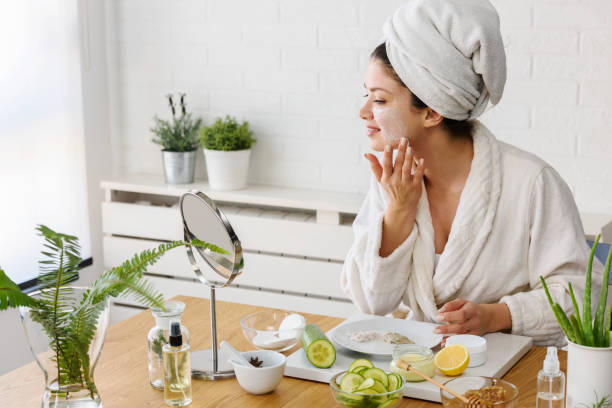
Importance of a Consistent Skincare Routine
A consistent skincare routine is pivotal in maintaining the health and appearance of your skin. Regular care not only addresses current skin issues but also prevents future problems. A daily routine ensures that your skin is consistently receiving the nutrients and protection it needs to combat environmental stresses like pollution and UV rays. Additionally, exercise helps in the natural shedding and renewal process of skin cells, keeping your skin vibrant and youthful.
Tailoring Your Routine to Your Skin Type
Customizing your skincare routine to suit your skin type is essential for its effectiveness.
- For Oily Skin: Focus on balancing oil production. Use lightweight, non-comedogenic products that hydrate without clogging pores.
- For Dry Skin: Products containing hyaluronic acid and glycerin help retain skin moisture, emphasizing the importance of hydration.
- For Combination Skin: Balance is essential. Use different products for different areas of your face, addressing both dryness and oiliness.
- For Sensitive Skin: Choose gentle, fragrance-free products to minimize irritation and inflammation.
- For Normal Skin: Maintain balance and focus on prevention with a simple, consistent routine.
5: Cleansing Fundamentals

Importance of Cleansing
Cleansing is crucial for healthy skin. It removes impurities, dirt, and oil that can cause acne and dullness. Regular cleansing also helps skincare products penetrate better and work more effectively.
How to Choose the Right Cleanser
Selecting the right cleanser is crucial:
- For Oily and Acne-Prone Skin: Gel-based or foaming cleansers are effective as they remove excess oil without stripping the skin.
- For Dry Skin: Cream or lotion-based cleansers that provide hydration while cleansing are ideal.
- For Sensitive Skin: Look for gentle, fragrance-free cleansers with soothing ingredients.
- For normal or combination skin: A soft, balanced cleanser, such as a mild foaming cleanser, works well.
6: The Role of Moisturizing
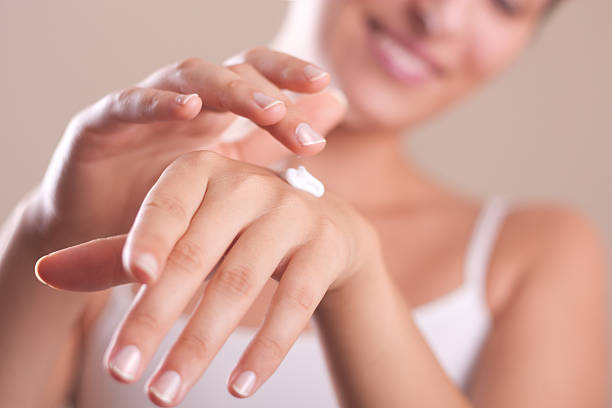
How Moisturizers Work
Moisturizers work by trapping and locking moisture in the skin, preventing dryness and dehydration. They also often contain ingredients that replenish the skin’s natural oils, improve barrier function, and provide nutrients.
Finding the Right Moisturizer for Your Skin Type
Choosing an appropriate moisturizer is crucial:
- For Oily Skin: Opt for lightweight, oil-free moisturizers. Ingredients like hyaluronic acid provide hydration without adding oil.
- For Dry Skin: Creams and ointments with a higher oil content are beneficial. Look for ingredients like shea butter and ceramides.
- For combination skin, a medium-weight moisturizer works well. Use more hydrating formulas on dry areas and lighter products on oily zones.
- For sensitive skin: Choose a fragrance-free and hypoallergenic moisturizer. Ingredients like aloe vera and chamomile are known for their soothing properties and can help ease skin irritation.
- For Normal Skin: A well-balanced, hydrating moisturizer is suitable. Regular hydration keeps normal skin healthy.
7: Sun Protection and Skincare

Understanding SPF and UV Protection
Sunscreen is a critical component of skincare, primarily for its role in protecting against harmful UV rays. SPF, or Sun Protection Factor, measures a sunscreen’s ability to protect skin from UVB rays, the kind that causes sunburn and contributes to skin cancer. Broad-spectrum sunscreens also protect against UVA rays, which can prematurely age your skin. A higher SPF number indicates more significant protection, but no sunscreen can block 100% of UV rays. SPF 30, for instance, blocks about 97% of UVB rays, while SPF 50 blocks about 98%.
Incorporating Sunscreen into Your Skincare Routine
Daily sunscreen is a must, no matter your skin or the weather. Use SPF 30+ broad-spectrum sunscreen every day as UV rays penetrate clouds. Apply after moisturizer, before makeup, and reapply every two hours outside or after swimming/sweating.
8: Exfoliation: Pros and Cons
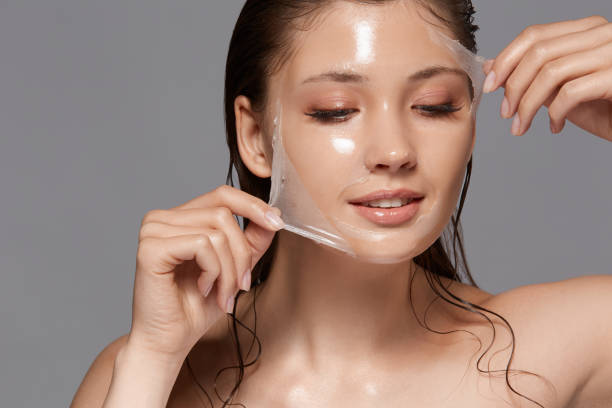
Types of Exfoliation: Physical vs. Chemical
To achieve a brighter and smoother complexion, exfoliation plays a significant role by removing the dead skin cells from the surface. There are two main methods of exfoliating the skin: physical and chemical. Physical exfoliation involves the use of a gritty substance to manually remove dead skin cells; chemical exfoliation involves the use of acids or enzymes to dissolve dead skin cells, while physical exfoliation uses scrubbing to remove them.
- Physical Exfoliants: Ideal for those who prefer immediate results. However, they can be abrasive, especially for sensitive skin.
- Chemical Exfoliants: These are gentler and available in various strengths. Alpha hydroxy acids (AHAs) and beta hydroxy acids (BHAs) are common types suitable for different skin concerns.
How Often Should You Exfoliate
Exfoliation frequency is determined by skin type and exfoliant used. Generally, once or twice a week is sufficient for most skin types. Over-exfoliating can cause the skin to lose its natural oils, which can lead to irritation and sensitivity. It is important to avoid excessive exfoliation to maintain healthy and balanced skin.
9: Anti-Aging Skincare
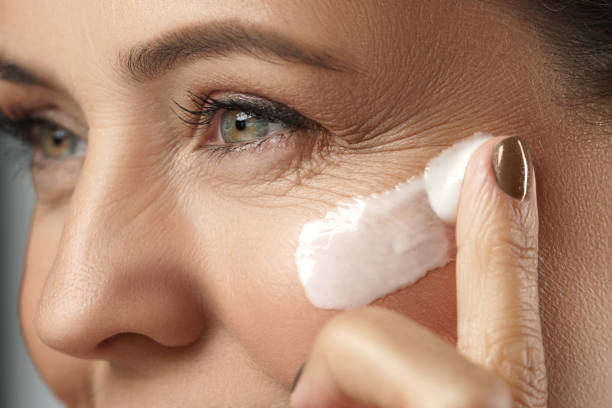
Common Ingredients in Anti-Aging Products
Anti-aging skincare products target signs of aging using ingredients like fine lines, wrinkles, and elasticity reducers.
- Retinoids: Derived from vitamin A, they are potent in boosting cell turnover and collagen production.
- Peptides: These small proteins stimulate collagen production and repair skin.
- Antioxidants: Vitamins C and E and ferulic acid, among others, combat free radicals and environmental damage.
Preventative Measures for Aging Skin
Preventative skincare is crucial in combating aging:
- Sun Protection: As UV exposure accelerates aging, daily sunscreen use is essential.
- Hydration: Keeping the skin well-hydrated preserves its elasticity and plumpness.
- Healthy Lifestyle: A well-balanced diet, sufficient sleep, and refraining from smoking can have a significant impact on the aging of your skin.
10: Dealing with Common Skin Problems

Acne Management
Acne is caused by excess oil, clogged pores, bacteria, and inflammation. For mild acne, try over-the-counter products containing salicylic acid, benzoyl peroxide, or alpha hydroxy acids. Cleanse regularly and avoid heavy products. For those who suffer from severe acne, it is highly recommended to consult a dermatologist. They can prescribe treatments that are not available over the counter.
Managing Dryness and Sensitivity
Dry and sensitive skin requires a gentle approach. Key strategies include:
- Hydrating Gently: Use products designed for sensitive skin, which are accessible from irritants like alcohol, fragrances, and harsh chemicals.
- Barrier Repair: Ingredients like ceramides and hyaluronic acid help to repair and maintain the skin’s natural barrier.
- Avoiding Hot Water and Harsh Scrubs: Using certain products can remove the natural oils from the skin, making it even drier and more sensitive.
11: The Impact of Diet and Lifestyle on Skin

Foods That Promote Healthy Skin
Diet plays a significant role in skin health. Foods rich in antioxidants, healthy fats, vitamins, and minerals contribute to a radiant complexion. Some skin-friendly foods include:
- Fatty Fish: Salmon, mackerel, and sardines are excellent sources of omega-3 fatty acids, which have anti-inflammatory properties.
- Avocados: High in vitamins E and C, they promote skin health.
- Nuts and Seeds: Especially almonds and sunflower seeds are excellent sources of skin-boosting nutrients.
Lifestyle Changes for Better Skin Health
Lifestyle factors significantly impact skin health. Adequate sleep, regular exercise, managing stress, and staying hydrated contribute to better skin. Avoiding smoking and limiting alcohol intake are also crucial, as they can accelerate skin aging and exacerbate skin issues.
12: Advanced Skincare Techniques

Introduction to Serums, Essences, and Masks
Serums, essences, and masks represent advanced skincare techniques that offer concentrated benefits.
- Serums: Highly concentrated and designed to target specific concerns like aging, hydration, or pigmentation.
- Essences are typically lighter than serums. They add an extra hydration layer and often contain active ingredients to enhance skin health.
- Masks: Masks are used occasionally for intensive treatments. They come in various forms, such as sheet, clay, or cream, each serving a different purpose.
The Benefits of Professional Skin Treatments
Professional skin treatments, such as facials, chemical peels, and microdermabrasion, offer benefits beyond regular home care. They can:
- Deeply Cleanse and Exfoliate: Removing more dead skin cells and impurities than at-home methods.
- Target Specific Concerns: Like deep wrinkles, hyperpigmentation, and severe acne with more potent ingredients.
- Stimulate Collagen Production: Professional treatments often stimulate collagen, improving skin texture and elasticity.
13: Myths and Misconceptions in Skincare

Debunking Popular Skincare Myths
Skincare is rife with myths that can lead to ineffective or harmful practices. For instance, the belief that higher SPF sunscreens are only marginally better than lower SPFs is misleading. In reality, while the difference in UVB protection between SPF 30 and SPF 50 is about 1%, this can be significant over time, especially for sensitive skin. Another common myth is that natural or organic products are always safer. However, ‘natural’ doesn’t necessarily mean better or less irritating.
Evidence-Based Skincare Practices
It is crucial to rely on evidence-based skincare. This means choosing products and routines backed by scientific research. For example, the effectiveness of retinoids in anti-aging skincare is well-supported by studies. Similarly, the role of hyaluronic acid in hydration is well-documented.
14: Ethical and Sustainable Skincare

Understanding Cruelty-Free and Vegan Skincare
Cruelty-free skincare refers to products not tested on animals, while vegan skincare means the absence of animal-derived ingredients. These practices are not only ethical but often indicate a brand’s commitment to environmental and social responsibility.
The Importance of Sustainable Packaging in Skincare Products
The importance of sustainable packaging is growing rapidly in the skincare industry. Any spelling, grammar, or punctuation errors have been corrected. This includes using recyclable materials, minimizing unnecessary packaging, and employing eco-friendly production methods. Sustainable packaging efforts help reduce the environmental impact of skincare products.
15: Building a Skincare Routine: A Step-by-Step Guide

Morning Skincare Routine
A morning routine should focus on protection and preparation for the day.
- Cleansing: To start your morning skincare routine, use a mild cleanser to eliminate any excess oils that may have accumulated overnight.
- Toning: It is important to apply toner to your skin after cleansing in order to balance its pH level and refine pores.
- Serum: Use a serum tailored to your skin concerns (e.g., vitamin C for brightening).
- Moisturizer: Hydrate your skin with a suitable moisturizer.
- Sunscreen: Finish with a broad-spectrum SPF of at least 30.
Evening Skincare Routine
The evening routine is centered on repair and rejuvenation.
- Cleansing: Remove makeup and impurities with a gentle cleanser.
- Exfoliation: Use an exfoliant (chemical or physical) as needed.
- Treatment Products: Apply targeted treatments like retinoids or spot treatments for acne.
- Moisturizer or Night Cream: Use a more nourishing moisturizer or a specific night cream.
16: Future Trends in Skincare
Technological Advances in Skincare
Technological advancements are transforming skincare, with innovations like AI-powered skin analysis and customized skincare formulations based on genetic testing.
The Growing Role of Personalization in Skincare
Personalization is becoming a significant trend. Products and routines are increasingly being tailored to individual skin types, concerns, and even genetic profiles, offering more effective and targeted skincare solutions.
17: Empowering Your Skincare Journey

Recap of Key Skincare Principles
In conclusion, it is important to understand your skin type, follow a consistent skincare routine, and protect your skin from the sun. Choosing products based on scientific evidence is fundamental to effective skincare.
Encouragement for Ongoing Skincare Education
The journey to healthy skin is ongoing. It’s essential to stay informed about new research, products, and practices in skincare. Remember, your skin’s needs can change over time, and so should your skincare routine.
18: References and Further Reading
Suggested Books, Journals, and Websites for Extended Learning
For those keen on delving deeper into skincare, there are numerous resources. Books like “The Skin Care Bible” by Dr. Anjali Mahto, journals like the Journal of Dermatological Science, and websites such as DermNet NZ offer in-depth information.
Frequently Asked Questions (FAQs)
1- Can diet affect skin health?
Yes, diet plays a significant role in skin health. Foods rich in antioxidants, healthy fats, and vitamins can promote a healthier complexion.
2- How often should I exfoliate my skin?
Generally, exfoliating one to two times a week is sufficient, but this can vary based on skin type and the exfoliant used.
3- Is sunscreen necessary every day?
It is important to apply sunscreen every day, even on cloudy days, to protect the skin from harmful UV rays.
4- What are the benefits of using a serum?
Serums are concentrated formulations that target specific skin concerns like aging, hydration, or pigmentation.
5- Can natural skincare products cause allergies?
Natural products can still cause allergies or irritation. It’s essential to patch-test any new product.
6- What is the best way to manage acne?
To manage acne, regularly cleanse with non-comedogenic products and incorporate salicylic acid or benzoyl peroxide. Severe cases may require dermatological consultation.
7- How do I know my skin type?
Assess your skin’s oiliness, sensitivity, and hydration levels after cleansing to determine your skin type.
8- Are DIY skincare remedies effective?
While some may be beneficial, it’s essential to use DIY remedies with caution as they may not be scientifically backed and could cause harm.
9- What does ‘non-comedogenic’ mean?
Non-comedogenic products are formulated to not block pores, making them suitable for acne-prone skin.
10- Is it necessary to change skincare routines with age?
Yes, as your skin changes with age, so should your skincare routine to address different concerns like dryness or fine lines.
Read also.. The Skin: A Comprehensive Guide to Understanding and Nurturing Your Skin

